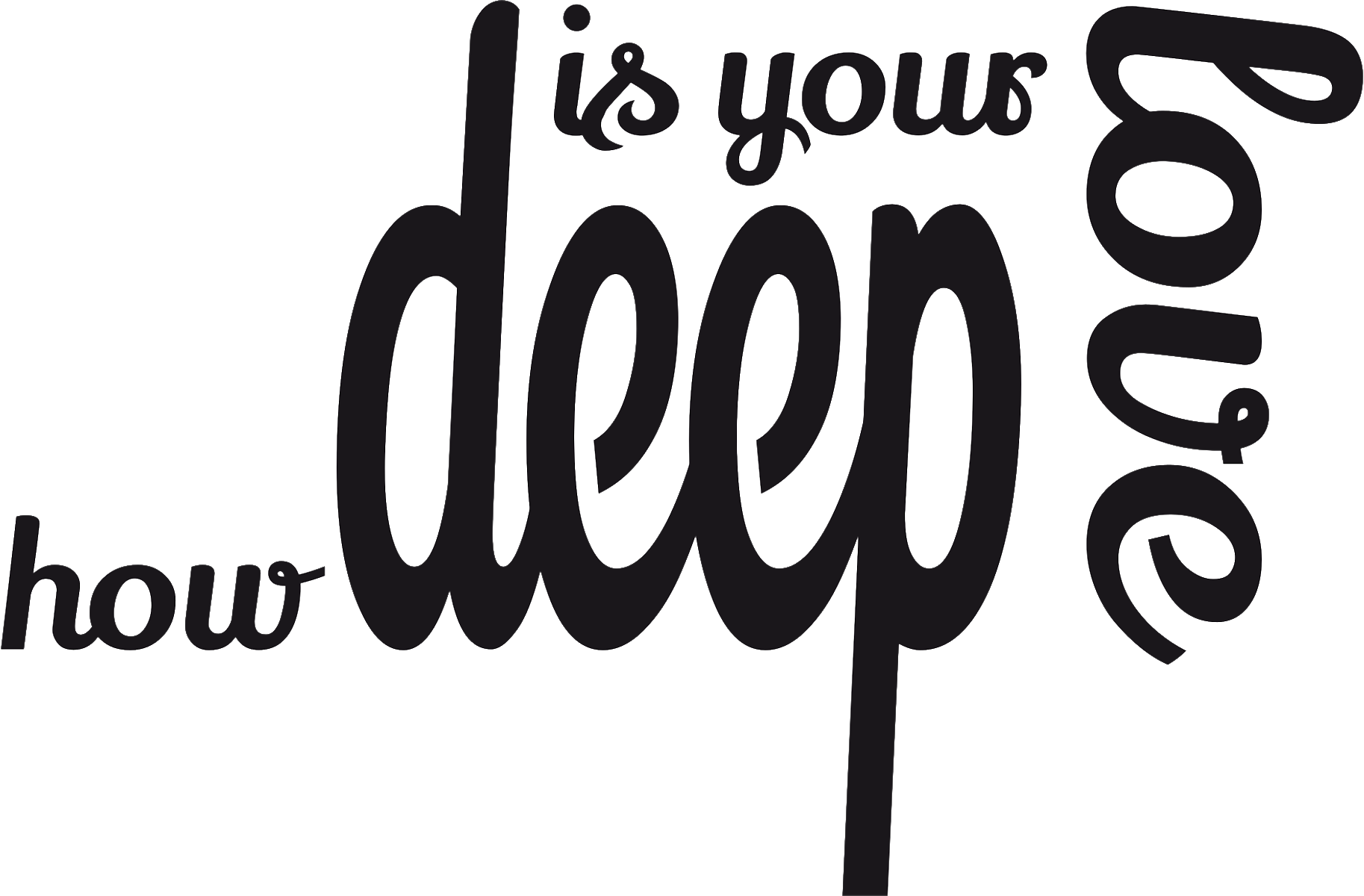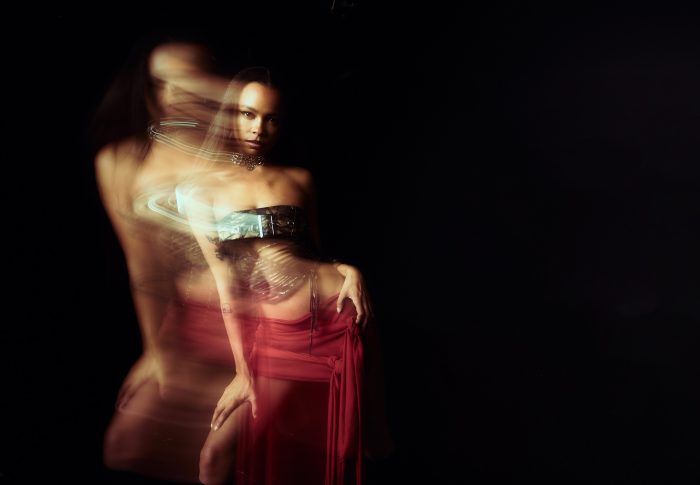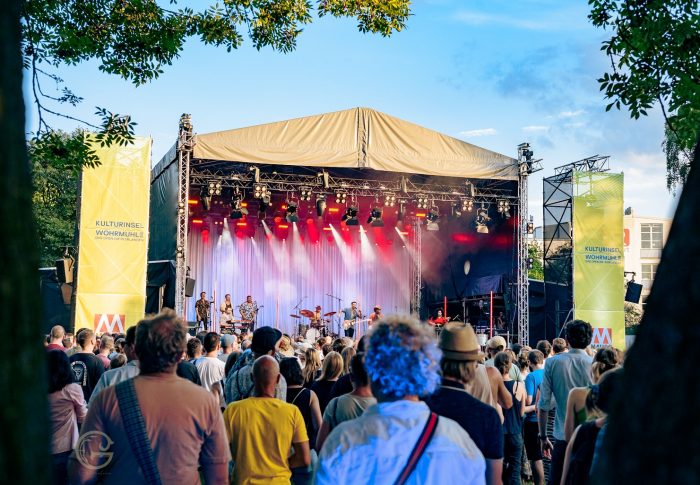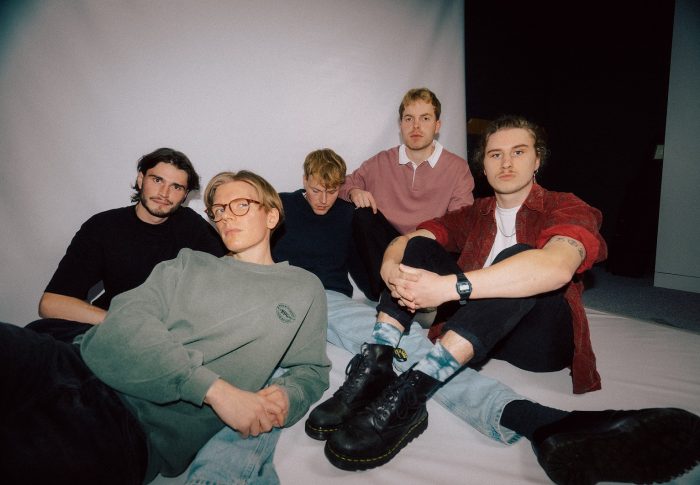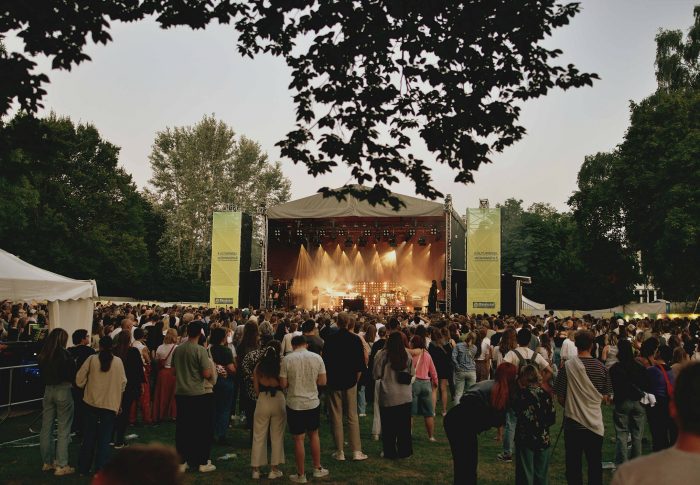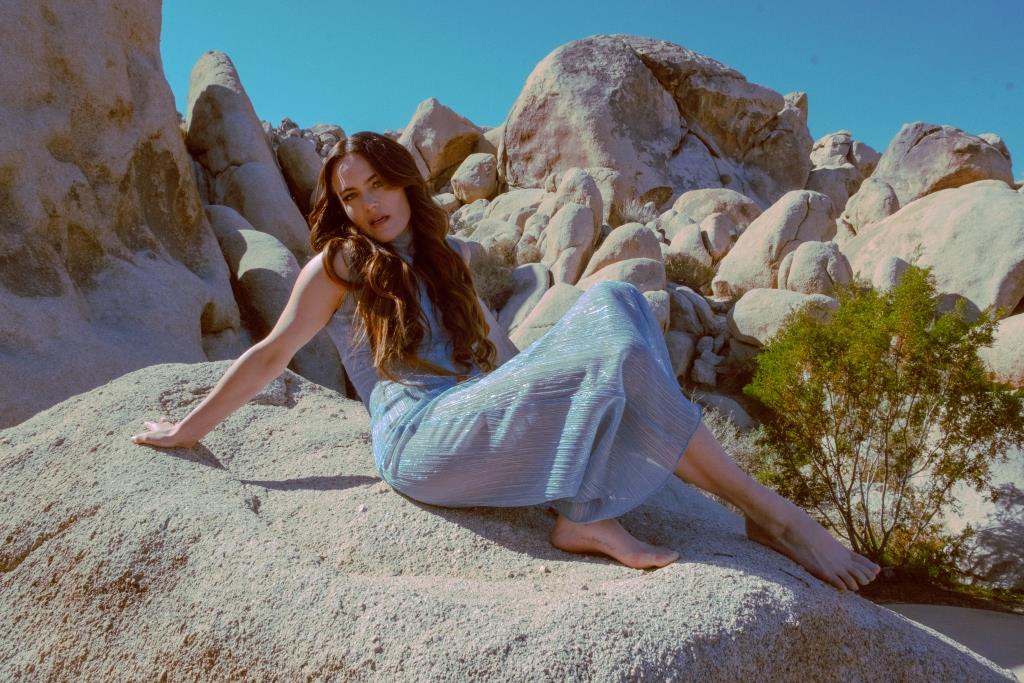
Interview: Julia Stone
Die australische Singer-Songwriterin Julia Stone kennt man natürlich als Teil von Angus & Julia Stone, die 2006 erstmals mit der EP „Chocolate and Cigarettes“ in Erscheinung traten und mit ihrem Mix aus Folk, Indie und Rock viele Herzen erobert haben. Aber Julia Stone macht auch solo Musik und hat neun Jahre nach nach ihrem letzten Album „By the horns“ nun mit „Sixty Summers“ ihr Drittwerk vorgelegt. Ein wundervoll sommerlicher Soundtrack, der verschiedene musikalische Genres schneidet und zeigt, wie vielfältig die Protagonistin mit ihrer Stimme umzugehen weiß. Elemente aus Soul, HipHop, 80s, Dance hin bis zu elektronsicher Musik verschmelzen zu einem lässigen Roadtrip über die Küsten ihres Heimatlandes hinaus in die große weite Welt. Entsprechend gutgelaunt zeigt sich Julia Stone beim Beantworten unseres kleinen Fragenkataloges und gibt Einblick in Entstehung und Facettenreichtum des Albums.
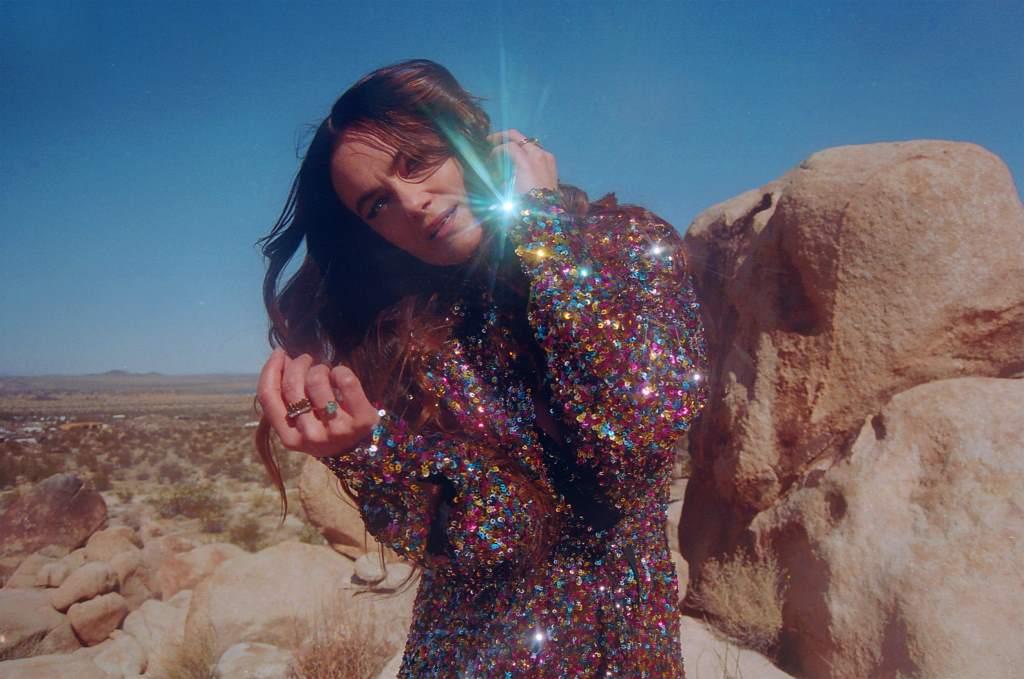
Hello how are you doing right now?
Hello! I’m doing okay. Thank you for asking.
You haven’t made a solo album since 2012. What were the reasons for releasing a new record after so many years?
I guess deciding to make this record came after about three years of just writing for the fun of it. The songs were all written from 2015 to 2018. I’d been writing a lot with my friend Thomas Bartlett, as well as doing writing sessions with Dan Hume and other friends of mine. It was nice not to write for an outcome, but to just enjoy the process of creating. It was in the third year when we had something like 30 songs that Thomas said to me, “What do you think about turning this into a record?” I’d been having such a magical time collaborating with all of these amazing musicians I deeply respect and love, and I really liked the idea, so when Thomas suggested we bring Annie Clark in to help us refine and decide on the direction for the album, the energy was really exciting.
Already with the first new single „Break“ an electronic impact can be heard. And a wonderful african rhythm. How did that happen?
Thomas is always making tracks. I would turn up the studio and he’d have 15 new tracks he’d been working on to show me. He would play through them one by one. They were all so different. Different feelings. I remember hearing the foundations of ‘Break’ and immediately wanting to sing over it. It was so strange and wonderful. Charged along. Thomas looped the track and I started singing. I just sang and spoke and went through whatever was coming into my mind at the time. I think I said something that made us both laugh and that’s when we stopped recording. We went back through and it just felt like the song. The darling darling bit felt like a chorus and the spoken word, rambling verses somehow all worked together. That recording was almost entirely what we used for the track that you hear now. I love ‘Break’ because of that. Hearing something being written in the moment.
It seems like you’re experimenting a lot more with your voice and your voice color too. Did you find it appealing to try out different directions here?
Yes, making this record gave me the freedom of being able to let myself go in whatever direction I wanted. I felt very encouraged and celebrated by Annie and Thomas when I’d do something different, or try something new, which really helped me to be comfortable to express myself fully. For example, ‘Dance’ is the first time I’d ever thought to experiment with just speaking words in a song, kind of like spoken word poetry. We had ended up with this production that was completely different from where it started, and the old melodic versus weren’t working, so I just wrote a kind of poem, and it seemed to just really belong.
The second new song, „Unreal“, is in no way inferior to your enthusiasm for experimentation, here a mixture of 80s pop and modern R’n’B elements shimmers through. Did you enjoy getting to know different genres on the way to your new album or are these just parts of you that have always existed?
Like I touched on earlier, I had just been writing for fun. Thomas would often have already built the foundation to a song, and I would come and sing over the top of it. We had something like 30 demos. ’Unreal’ didn’t really change too much from the original demo. A lot of the tracking from the day we wrote it is what you hear on the final version. I enjoyed experimenting with new ways of singing but I also think these parts of me have always been there. I remember years and years of soundchecks- just saying things and writing songs on the spot with the band for fun. I always liked writing like that. Pop music as well, both mainstream pop and more alternative or avant gard pop has always been a love of mine. It didn’t feel like I was exploring a whole new world. Just felt like I was coming to a place I’d been as a child… remembering the fun of clubbing and dancing as a kid to that kind of music.
The third new single, „Dance“ is not an uptempo song. How do you think one should dance to it?
It’s funny you say that. It isn’t an up-tempo song. But somehow in the most recent show we did it was the moment that whole crowd stood up from sitting on the grass and started dancing. I was surprised but I suppose, the body has a way to move to music… whether it’s swaying of really moving in a strong rhymical way, it’s all dancing .
You got Matt Berninger from The National for a feature („We All Have“). Many will be jealous. How did you do that?I actually got to know the members of The National through my friendship with Thomas. He has collaborated with them on nearly all of The National’s records. I actually first met Thomas at one of their shows. When we were close to finishing the record, ‘We All Have’ hadn’t changed much from it’s original form, and Thomas suggested that we ask Matt to sing on it. I’ve been a fan of The National for some time, and I thought it would be really sonically interesting to have Matt’s beautiful deep voice on the track, which is so different tonally and texturally to mine. It was exciting when he said he wanted to sing on the track, and we received his beautiful vocal take. He has been so beautifully supportive of me and the release of ‘Sixty Summers’. It has been a pleasure getting to know him as the loving and genuine person that he is.
All in all, after listening to it twice, we have the impression that with „Sixty Summers“ you have presented a rather colorful, versatile work. Do you think so too?
Yes, definitely. I think because the songs were written over quite a long period of time, there is a lot of change reflected throughout the record. We weren’t trying to write in a certain style, so a lot of the songs are quite different. Thomas and Annie both brought their incredible artistry and musicianship to the process and made me feel supported to create freely and without boundaries, and express myself in whatever way felt right for me. They created sounds that tied the record together and unified the body of work but I do feel each song is its own moment and mood which makes it colourful and multifaceted. I wanted that to be reflected in all the artwork and videos. That I, and anyone on the planet is just one thing… you’re all these things co-existing at once. The shadows, the light and everything in between.
What role does it play for you in these times when the music market is constantly changing and many voices want to bury the album as a total work of art, the album as a total work of art?
I personally really love albums as complete pieces of art. But I also love singles and playlists. I like variety. I love making albums but if the worlds ends up wanting it to be single after single then I’m okay with that. Before albums were a thing, it used to be just singles… as long as I can make music I’m okay.
How do you think „Sixty Summers“ should be heard as a whole?
It’s a record about different ways of experiencing love. I think it goes down all the different avenues of self-love, disrespectful love, deep love, unrequited love, untruthful love, truthful love… Love is a word that is too small to encompass all the multitude of ways it shows up in our lives. So each song is different side to that word.
Do you miss playing live as much as we go to concerts?
Yes, so much. I can’t wait to play concerts every day of the week.
Do you think we can all do this again soon?
I have no idea. I feel like that is the one thing we know, is that we don’t know.
Finally, two questions from an editorial colleague who is totally into „dance“ and the accompanying video: The actors Susan Sarandon and Danny Glover star in your video „Dance“. How did the collaboration come about?
Jessie Hill, the director of ‘Dance’ and myself are good friends. We were talking about a visual story that would bring the song to life. We wanted to explore the feeling of falling in love in the later years of your life. Being in your seventies and getting ready to go out on a date. That same sparkly feeling that is accessible to anyone at anytime but so rarely portrayed in that age demographic. Both Jessie and I grew up with extraordinary and vibrant grandparents so for us it was always clear that life could be thrilling as you grow older. All these life experiences can lead to really knowing what you want, which has a very specific sexiness to it.
We were talking about who we’d love in a dream world to tell this story on camera and of course we both grew up watching Danny and Susan on the screen. We sent them the treatment for the video and the song and they both wanted to be involved. A true moment of pure excitement. 2 months later we were shooting in New York.
And to the absolute end: Can you send a selfie of yourself with this interview, in which you look the way you feel when the album finally comes out?
Yes of course.
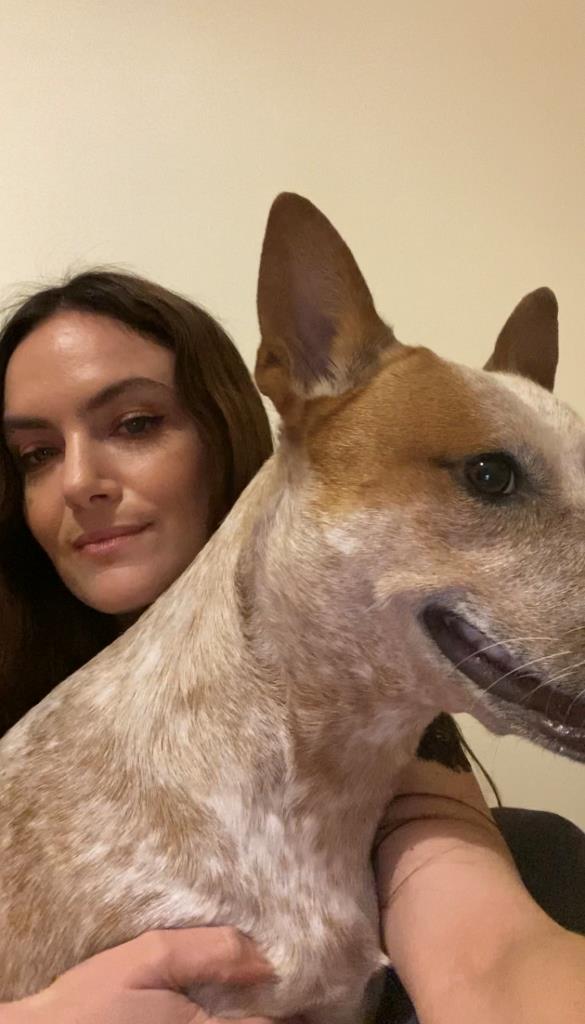
Interview: David Lodhi
Fotos: Ashley Barone, Julia Stone (Selfie)
Das neue Julia Stone Album „Sixty Summers“ ist am 30. April auf BMG Rights Management (Australia) Pty Ltd. erschienen und überall wo es (gute) Musik gibt erhältlich.
